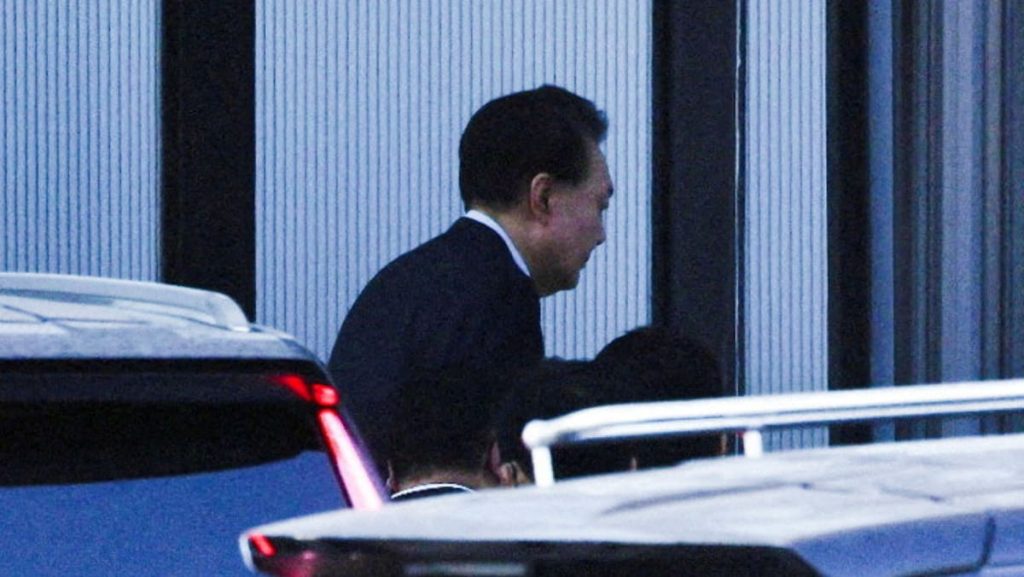The political landscape of South Korea is currently embroiled in a high-stakes drama surrounding President Yoon Suk-yeol, who faces potential removal from office amidst a whirlwind of legal challenges and public protests. Yoon’s troubles stem from allegations of corruption and abuse of power, culminating in his detention and a pending impeachment trial. While he voluntarily surrendered to authorities to prevent potential violence, Yoon vehemently denies the legitimacy of the investigations against him, setting the stage for a protracted legal and political battle that could reshape the nation’s leadership. His supporters have rallied outside the courthouse, waving national flags and demanding his release, a stark visualization of the deep political divisions gripping the country.
The court’s decision to close its doors to the public underscores the escalating tensions and potential for unrest. Yoon’s refusal to cooperate with investigators, coupled with the court’s closure, has fueled further speculation and criticism, adding another layer of complexity to an already volatile situation. His legal team maintains that the president has already clarified his stance during his initial detention, but this explanation has evidently failed to satisfy either the investigators or his political opponents. The parallel impeachment proceedings further complicate matters, with Yoon conspicuously absent from the initial hearings. This absence, while not halting the proceedings, casts a long shadow over the process and raises questions about his engagement with the legal challenges he faces.
The potential consequences of the Constitutional Court’s eventual ruling are substantial. If the court sides against Yoon, he will be removed from office, triggering a snap presidential election within 60 days. This scenario would create significant political instability and uncertainty, with the nation grappling with the fallout of a prematurely ended presidency. The opposition Democratic Party, holding a parliamentary majority, stands poised to capitalize on Yoon’s predicament, already hailing his arrest as a crucial step toward restoring order. This political backdrop adds another dimension to the legal proceedings, highlighting the intertwining of legal and political considerations in this high-stakes power struggle.
Yoon’s presidency, despite his 2022 electoral victory, has been marked by political turbulence due to the Democratic Party’s control of the legislature. This power dynamic has created a persistent tension between the executive and legislative branches, setting the stage for the current crisis. The opposition’s celebration of Yoon’s arrest and their swift passage of a bill to initiate a special counsel investigation into his alleged attempt to impose martial law demonstrate their determination to pursue his removal from office. This aggressive stance signals a protracted and potentially bitter political fight, with the Democratic Party seemingly intent on leveraging its parliamentary majority to hold Yoon accountable.
The special counsel investigation authorized by parliament adds another layer of scrutiny to Yoon’s actions, specifically focusing on his alleged attempt to invoke martial law. This move further escalates the pressure on the embattled president, widening the scope of the investigations and potentially uncovering further evidence against him. The multiple investigations, combined with the ongoing impeachment trial and the public protests, paint a picture of a president besieged from all sides. His ability to navigate these challenges will determine not only his political future but also the stability and direction of South Korea.
The ongoing political and legal turmoil surrounding President Yoon has created significant uncertainty for South Korea. The potential for his removal from office through impeachment, the mounting investigations into his conduct, and the fervent public protests all contribute to a climate of instability. The outcome of the Constitutional Court’s deliberations will have profound implications for the nation’s future, potentially leading to a snap election and a significant shift in the political landscape. The interplay between the legal proceedings, the political maneuvering of the opposition, and the public’s reaction will ultimately determine the course of this unfolding drama and the future leadership of South Korea.

